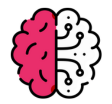In today’s fast-paced world, we make countless predictions every day. Whether it’s forecasting the weather, deciding when to leave for work, or trying to guess the winner of a sports match, predicting outcomes is something we do almost instinctively.
But what makes us so confident in our ability to predict? How do we strike a balance between data-driven decisions and gut feelings?
Let’s explore the delicate interplay between data and intuition in decision-making and how both elements influence everyday predictions.
The Role of Data in Decision-Making
Data has become a cornerstone of modern decision-making. Data is collected, analysed, and used to make predictions and inform strategies in virtually every field, from business to healthcare. The rise of big data and advanced analytics has transformed how we approach decisions, allowing us to make more informed choices based on evidence.
Take sports, for example. Sports teams, coaches, and analysts use vast data to track player performance, team dynamics, and historical trends. Metrics like a player’s shooting accuracy, the team’s average possession time, and even weather conditions are all analysed to predict game outcomes.
This type of data-driven prediction has become so accurate that, in many cases, the odds in daily sports betting are based entirely on statistical models.
According to a 2018 report by Statista, the global sports analytics market is projected to grow at a compound annual growth rate (CAGR) of 42.2% from 2018 to 2025, showing just how vital data analysis has become in sports and entertainment. Betting companies, sports teams, and media outlets invest heavily in data analytics to improve predictions.
The Power of Intuition in Decision-Making
While data is undeniably powerful, intuition also plays a significant role in decision-making. Intuition is often defined as understanding something without needing conscious reasoning. That “gut feeling” or hunch helps us make decisions quickly, sometimes even before we have all the facts.
Intuition is fundamental when there is limited information or decisions must be made rapidly. When solving problems or analysing outcomes, intuition can help guide us in situations where data alone may not provide a clear answer.
Psychologists have studied the role of intuition in decision-making. According to a 2017 National Academy of Sciences study, intuition often emerges when individuals are faced with complex decisions that involve uncertainty and ambiguity, suggesting that our brains rely on previous experiences and patterns to guide us.
In some cases, intuition is not merely a guess but is based on a subconscious analysis of past experiences and knowledge.
How Data and Intuition Work Together
A 2019 study by Deloitte found that data-driven decision-making leads to better business outcomes. Still, companies that combine data analytics with intuitive insights are even more likely to outperform their competitors. This suggests that when it comes to predictions—whether it’s in business, sports, or everyday life—there is real value in using both data and intuition.
The Psychology Behind Decision-Making: Why We Trust Both Data and Intuition
Humans are wired to seek patterns and make predictions, even when the information is incomplete. This survival mechanism allows us to anticipate threats and make quick decisions in uncertain environments. While data provides an objective view of the world, intuition is more subjective and often shaped by our emotions, experiences, and biases.
Understanding cognitive biases is an essential part of improving decision-making. A study published by the American Psychological Association highlights how cognitive biases, such as overconfidence or availability heuristic, can influence intuitive and data-driven decisions.
Conclusion
Making predictions is an inherent part of human nature. Whether we rely on data, intuition, or a combination of both, the prediction process plays a critical role in navigating the world.
As the tools for data analysis continue to evolve, intuition will remain just as important in our ability to make informed, successful predictions.
The intersection of data and intuition is not just about finding the right answers—it’s about making decisions in an increasingly complex world. By learning to recognise the strengths of both approaches, we can improve our ability to predict outcomes.



